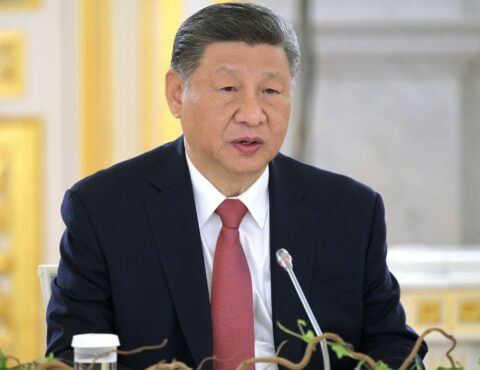Henry Kissinger, 100, died on Wednesday. He is most well known for serving as both National Security Advisor and Secretary of State under Presidents Nixon and Ford.
His legacy policies include the invasion of Cambodia and the wind-down of the Vietnam War. He later oversaw the recognition of Communist China away from Taiwan. He also had a hand in the Chile coup that ousted Socialist leaders. The NY Times’ obituary described him as:
Henry A. Kissinger, the scholar-turned-diplomat who engineered the United States’ opening to China, negotiated its exit from Vietnam, and used cunning, ambition and intellect to remake American power relationships with the Soviet Union at the height of the Cold War, sometimes trampling on democratic values to do so, died on Wednesday at his home in Kent, Conn. He was 100.
Few diplomats have been both celebrated and reviled with such passion as Mr. Kissinger. Considered the most powerful secretary of state in the post-World War II era, he was by turns hailed as an ultrarealist who reshaped diplomacy to reflect American interests and denounced as having abandoned American values, particularly in the arena of human rights, if he thought it served the nation’s purposes.
The left’s dislike of Kissinger is well known, due to his ignoring of human rights as a core American interest as opposed to hard power. Kissinger also drew the ire of neoconservatives for the same reason, opposing support of Soviet Jews in their exodus to Israel. All senior US Government officials have nevertheless paid homage to his acumen. Fox News says:
Secretary of State Antony Blinken, the man currently in the position that Kissinger held across two presidencies, said Kissinger “set the standard” for being the senior U.S. diplomat.
”Secretary Kissinger really set the standard for everyone involved in this job,” Blinken said in Israel, during a meeting with Israel President Isaac Herzog. “I was very privileged to get his counsel many times, including as recently as about a month ago. He was extraordinarily generous with his wisdom, with his advice. Few people were better students of history. Even fewer people did more to shape history than Henry Kissinger.”
Kissinger’s approach reflected a specific time and place that would probably not receive widespread support today. His realpolitik approach looked at the world’s balance of power, without letting emotions cloud judgement. This would change the trajectory of US foreign policy if it was imitated in some form.
READ NEXT: Gaza Truce Decision Made









